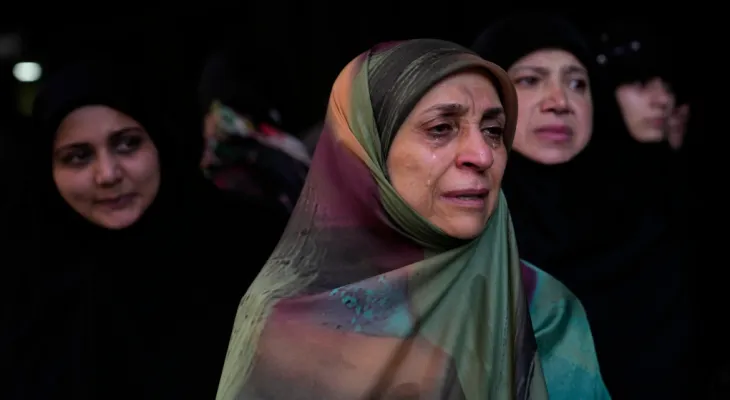Search here
Newspaper
Search here

Arab Canada News
News

Published: August 12, 2024
After being displaced five times to southern Lebanon, Kamel Marwa and his wife Mariam feel anxious about their next step as they follow the news of clashes between Israel and Hezbollah, fearing that hostilities at the border might escalate into a full-blown war.
The parents of three children, who live abroad, are commuting back and forth between their village of Hamr, which is a few kilometers from the border, and their friends in other places around Lebanon.
Marwa, an academic, said, "The future is bleak."
The conflict has displaced more than 100,000 people in southern Lebanon, according to the International Organization for Migration's Displacement Tracking Matrix.
Israel and the Iran-backed Hezbollah have exchanged fire since Hamas, the Palestinian group, attacked Israel on October 7, igniting the war in Gaza, which shows no signs of abating.
Now in its tenth month, the conflict has spilled over into Lebanon, where Israel has inflicted destruction in past conflicts with Hezbollah.
The destruction in the past
The 2006 war between Israel and Hezbollah resulted in the deaths of 1,200 people in Lebanon, most of them civilians, and 157 Israelis, mostly soldiers. Israel also bombarded southern Lebanon, which is controlled by Hezbollah, and destroyed vast areas of its stronghold in the southern suburbs of Beirut.
Most of the fighting over the past ten months has erupted along the border between Israel and Lebanon. Israel has heightened tensions by assassinating prominent Hezbollah figures.
Mr. Hassan Nasrallah, the leader of the powerful Lebanese armed group, said earlier this month that Hezbollah's response to Israeli attacks would be strong and effective.
This was during a speech marking the weekly anniversary of the group's top military commander, Fouad Shukr, who was killed in an Israeli raid in the southern suburbs of Beirut.
Iran and Hezbollah have also threatened to retaliate for the assassination of Hamas leader Ismail Haniyeh in Tehran last month, which has widely been blamed on Israel, which has not claimed responsibility for the attack.
The Lebanese state, already suffering from a five-year economic crisis exacerbated by the ruling elite, has struggled to provide basic services even before the current conflict began. The economic crisis and border conflict have left devastating losses.
Mariam said, "All this affects you – your mental state is impacted to the extent that I started taking medication to calm my nerves."
While Israel shelters the displaced in government-funded housing, Lebanon relies on ill-equipped public schools or informal arrangements, such as staying with family or friends.
Wafa Youssef Darwish sought refuge with her family. Darwish hails from the village of Daraya, close to the Israeli border, and fled to stay with her sister in Tyre, a southern city that has been targeted by airstrikes during the conflict.
Darwish, who worked in agriculture producing and selling cans of olive oil, said, "We were in our village, working normally, and war was imposed on us." She explained that the war deprived Lebanese people of their homes, neighborhoods, and livelihoods.
"It is a great tragedy."
Comments